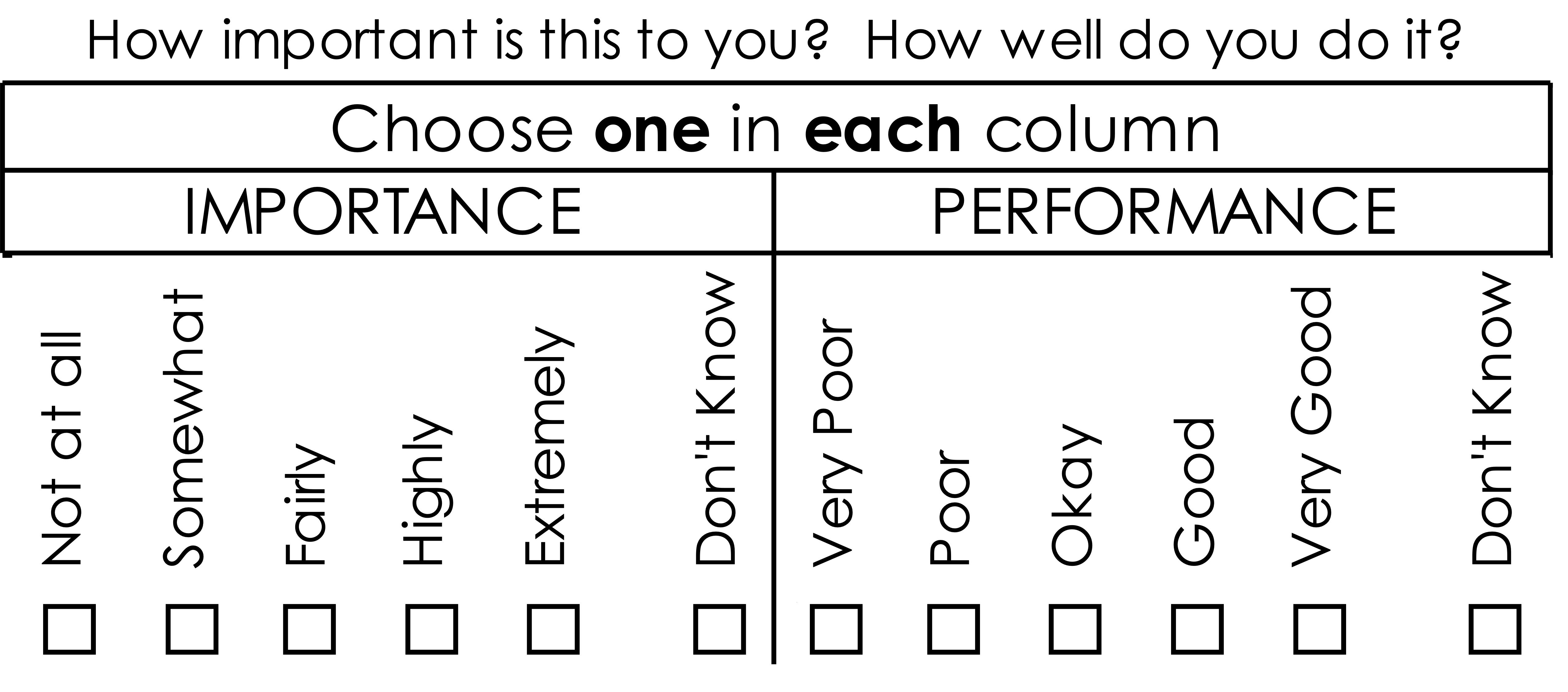Too Many Things to Do? Applying Even One of the Many Time Management Strategies Will Help.
- Home
- Basic Productivity Skills
- Too Many Things to Do
Do you feel like you have too many things to do?
The key to developing new habits is to first develop the mind. Yes, read those books on time management strategies. It is in our thinking that the seeds of better practices are planted. Read to feed you mind with ideas and techniques that have been used to help others reach greater effectiveness.
Including this "52 Solutions" series, there are hosts of books and articles that you can access. After reading, take an index card or your memo book and record one or two strategies that you could take action on immediately. Review them daily. Next week take one or two more.
After several weeks you will have established new habits that will not only save you time but actually create found time for you.
Here's the key. You must do something about that good idea you read. Find that one good strategy and incorporate it. And then another, and another.
"The person who never turns talents into skills is a person about whom others say, “He had so much ability. He just never did anything with it."
Tim Lavender, Achieving Personal Greatness
Five Days of Coaching for Leaders Who Have Too Many Things to Do

DAY ONE
Make a list of the books about time management you have read in the last year. How did they feed your mind? Were you intentional about taking action? What principles and strategies did they offer that you actually began to use? How have they already began shifting you from too many things to do, to I'm getting the right things done?
The Coach asks:
- Create a list of books you have read that reflect on time management, priority management, energy management, getting more done, or achieving more priorities.
- What have you already learned that you have intentionally implemented and carried on with until it became a habit? Reflect on this.
- What caused you to take action and apply what you had read? And, if this is the case, what do you think has caused you to fail to implement?
- What are you willing to do?
DAY TWO
Check your personal library for books on time management, self management and priority management. Pull a few down and skim through the content for the big points. Refresh your memory with the principles and strategies that allow people to accomplish what is important to them.
The Coach asks:
- Pull out your personal collection of such books and quickly scan for the big ideas.
- What did you underline, dog-ear, or use a sticky note on? What stands out about that section?
- With all the advice and strategies in just these few books, how great is your need for another book? Are you a collector of ideas or an implementor of helpful strategies? Be honest.
- What one idea that you just reviewed could create a significant change in your productivity, effectiveness, and satisfaction? What will you do about it?
DAY THREE
Since a 1% improvement each week for 10 weeks is a 10% improvement, pick one strategy and implement it today. Don't procrastinate. Next week add one more. Keep on doing this until you are satisfied.
The Coach asks:
- What would a 1% improvement each week for 10 weeks mean to your output? To your team? To your organization?
- What one strategy that makes complete sense to you, will you begin to act on starting right now? How will you persevere through distractions and busyness? What's your plan?
- How can you be more intentional? Create an environment to make these things happen.
- How are you doing? What adjustment if any, might be needed? Keep going.
DAY FOUR
Today, become a note taker. When you read a helpful practice, jot it down and try to implement it immediately. Use your note as a reference for several weeks until the practice becomes habit.
The Coach asks:
- How have you traditionally turned notes into actions? Not every great idea is appropriate for "right now." How can you avoid losing the strategy? When and how will you come back to it?
- What prompts work best for you?
- If you need a fresh jump-start on time management strategies, do an internet search. You'll come up with a ton of ideas and insights. Read several and get your mind around a few good ones.
DAY FIVE
Play a bigger game. Determine to eliminate at least one hour of wasted time from your day. Once you achieve that, eliminate another hour of wasted time.
The Coach asks:
- This is huge. Imagine the time to be gained with the elimination of just doing "stuff" (or nothing.)
- Determine that your time is of inestimable worth. You can't get it back. You are investing it in "something." What is your return on investment? What do you want it to be? Where can you trim an hour today? Work at it.
- The Pareto Principle informs us that you might well achieve 80% or your really important stuff in 20% of your time. If that is so, you are awash in time. Identify that 20% when you are really being productive. Do more of it and less of the other.
- Peers don't want to be around the whiner who constantly complains, "I have too many things to do." Sometimes it's true. Often times, it's not. It just feels like it. And, with some adjustments in attitude, strategy and action, big gains can be made.
With Many Advisers Plans Succeed

As a Christian Executive Leadership Coach I encourage Christian leaders to reflect on God's Word to add to their wisdom.
- Ps 90:12 Teach us to number our days, that we may gain a heart of wisdom.
- Pr 15:22 Plans fail for lack of counsel, but with many advisers they succeed.
- Eph 5:15,16 Be very careful, then, how you live - not as unwise but as wise, making the most of every opportunity, because the days are evil.
- Lk 14:28 Suppose one of you wants to build a tower. Won't you first sit down and estimate the cost to see if you have enough money to complete it?
- Ecc 3:1 There is a time for everything ...
- 1 Pt 5:7 Cast all your anxiety on him because he cares for you.
If you are a leader, executive, or senior level professional looking to work with a Christian Executive Coach, I invite you to connect with me here.
If appropriate, we can meet by phone or Zoom to discuss your situation.
Record Your Progress
This is your opportunity to track your progress. Start by asking yourself how important this practice is to you? Record the importance as - not at all, somewhat, fairly, highly or extremely.
Now next to it ask yourself how well you carry out this practice. Record your performance as - very poor, poor, okay, good or very good.

The things we track, we pay attention to. Across time, come back and record your new results. You will find that as you are intentional about making improvements, you will bump your "score" up higher.
This is significant. Don't miss the opportunity to acknowledge your success, and use it as a springboard for making even further gain.
Notes
Let's face it. A book won't do you any good whatsoever unless you take to heart and implement some idea or strategy that might make your life easier and more effective.
Pick up that one idea and act on it. If you don't you'll continue to feel like you have too many things to do. But, if you do ... there's no telling what kind of a contributor you can be.
Contact me here Privacy Policy
© G.E.Wood and Associates. All Rights Reserved in all media.
G.E. Wood and Associates is an international coaching firm registered in Ontario, Canada
142 Pratt Crescent, Gravenhurst, Ontario, Canada, P1P 1P5